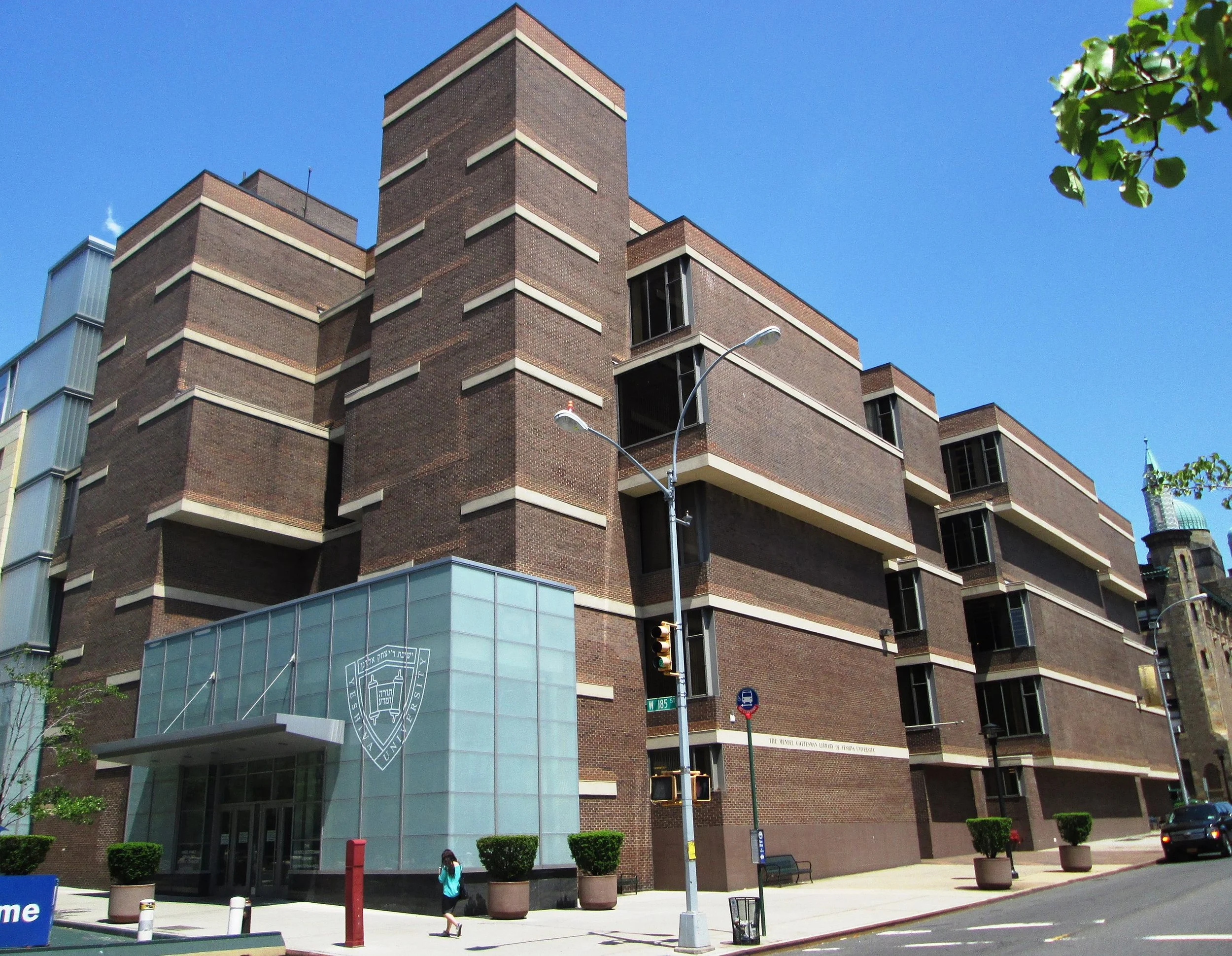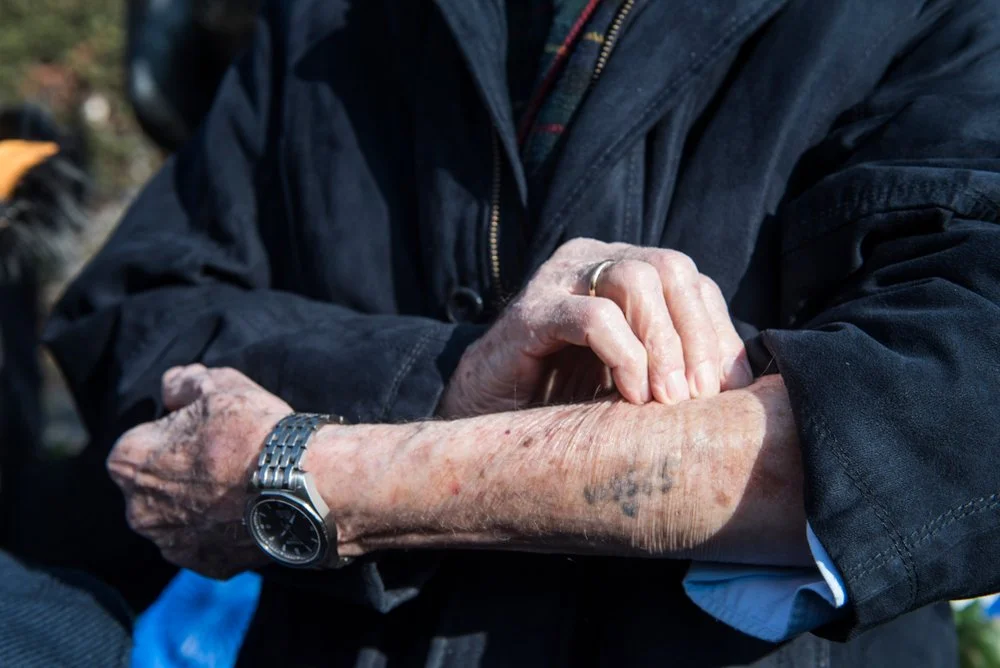Fallout: The Jewish Philanthropy World Reacts to Allegations Against a Top Donor
/Photo: Debra Nussbaum Cohen
This week, a New York Times front-page article reported that Michael Steinhardt sexually harassed six young women who had come to him raising money, or who were dependent on him as young rabbis in a fellowship he funded. The story, written in partnership with ProPublica, has been a focus of conversation across the Jewish nonprofit world.
But it was hardly a bombshell. Nearly everyone in Steinhardt’s orbit over the years has been aware of his reputation for saying coarse, sexualized things—and as a mega-philanthropist and innovator of some of the most significant projects in the Jewish community, like Birthright Israel, that includes a lot of people. Steinhardt has a longstanding reputation as a gruff, quirky contrarian who has also enjoyed proclaiming that he is an atheist, even as he funds religious institutions. The retired hedge fund manager and his foundations have given some $127 million since 2003, according to tax filings. Forbes estimates Steinhardt’s wealth to be $1.1 billion.
While Steinhardt’s unprofessional behavior has long been known to make many women uncomfortable, it was generally chalked up to the behavior of a man, now 78, from an older generation. It went largely unchastised because of the sway Steinhardt holds as a major donor to multiple Jewish nonprofit organizations.
Steinhardt is a creator and original major donor to Birthright Israel, which has taken more than 600,000 Jews aged 18 to 25 on free 10-day trips to Israel. He was an original funder and creator of the Partnership for Excellence in Jewish Education and has also funded the Hebrew Charter School network. There is a plant conservatory named for him and his wife Judy at the Brooklyn Botanic Garden (he grew up in the borough), and a school bearing their name at New York University, and the Hillel building at the University of Pennsylvania. Steinhardt is a famous collector of art, primarily antiquities, and has a private zoo at his 55-acre estate in Katonah, New York.
But now, on the front page of the nation’s most influential daily, six women have come forward, with four quoted by name. And Steinhardt’s behavior could not be overlooked any longer.
With his reputation tarnished by his behavior and the press coverage, will Steinhardt continue to be as influential as he has been for two decades? A senior Jewish foundation executive, who asked not to be named because of his relationship with the philanthropist, said he believes that Steinhardt’s giving “will survive this. I’ve been wrong before, but I haven’t heard about anybody rejecting his money,” he said.
The Steinhardt Foundation for Jewish Life issued a statement—initially circulated privately, and later in the day, published on its website—signed by two of his adult children, who serve as vice-chair and trustee of the foundation, as well as the heads of that foundation and the executive director of the Steinhardt Family Foundation in Israel.
“Admittedly, Michael’s sense of humor can be insensitive, and he has apologized for the unintended bad feelings his remarks have caused. As he said months ago: ‘I am sorry and deeply regret causing any embarrassment, discomfort or pain, which was never my intention.’ To characterize provocative remarks made in jest and in group settings as actual propositions intentionally distorts the context as well as Michael’s intent.”
The statement continues: “Michael is an equal-opportunity teaser—teasing men and women alike. The reporters apparently overlooked this fact because teasing men and women, alike, doesn’t make for a great story.”
It concludes by saying, “We are evaluating our legal options over this intentionally defamatory article,” and states, “Michael remains committed to his philanthropic work involving education, culture and the Jewish future. In Israel, he will continue to help improve the conditions of Israel’s most marginalized populations. For years, he has supported shelters for women escaping sexual abuse, and empowerment programs for Bedouin women and girls—details that the reporters never asked about.”
The New York Times article states that Hillel International, the network of campus Jewish organizations, decided not to solicit a $50,000 donation that Steinhardt had earlier pledged. As soon as they received the findings of an investigation they initiated after complaints of Steinhardt’s treatment from female staff members, Hillel also removed his name from its international board of governors, which is composed of major donors.
The now-public revelations about Steinhardt should shine a brighter light on all the kinds of abuse that major donors dispense to nonprofit staff members, said the foundation executive.
“The reckoning here goes beyond Michael and to the type of behavior professionals need to endure from funders,” he said. “It’s a mistake to frame this only in terms of gender. The bullying from funders happens in so many ways that aren’t necessarily gender-related.”
Steinhardt has two foundations in the U.S. and one in Israel. In the U.S., the Judy and Michael Steinhardt Foundation reported distributing $7.1 million in 2015, the most recent year for which tax filings are publicly available. Of that, $2 million was given to American Friends of Tel Aviv University, $500,000 to the Steinhardt Family Foundation, $166,600 to Middlebury College and $62,500 to the Jewish youth organization BBYO. The foundation gave smaller amounts throughout that year to the Metropolitan Museum of Art, Visiting Nurse Service of New York and the Wildlife Conservation Society.
The Tel Aviv University donations were for the completion of the Steinhardt Museum of Natural History at the Israeli university. It was inaugurated in July 2017.
The Steinhardt Foundation for Jewish Life in 2015 gave away $1.7 million, which was down from $2.5 million three years earlier.
Another family foundation took the unusual step of issuing a public statement the same day the Times article was published. The Lippman Kanfer Foundation for Living Torah “stands with and supports all those who have been subjected to harassment and degradation by Michael Steinhardt,” wrote Marcella Kanfer Rolnick, its chair, and Aaron Dorfman, its president. “On this holiday of Purim, today’s news is a sad reminder that the story of women like Esther and Vashti, who faced harrowing choices when deciding how to respond to those who threatened their basic human dignity, is not simply a historical relic.”
In an interview with Inside Philanthropy, Kanfer Rolnick urged Steinhardt “to reach into the well of our Jewish wisdom tradition and practice heshbon hanefesh (an accounting of his soul) and teshuva (repentance), and be a role model. This doesn’t have to be a bad ending for Michael’s wonderful philanthropic career… He can add to his good tzedakha (charitable) work and show leadership, helping our community truly become safe for women and all kinds of Jews who may not be experiencing safety, respect and equity. I would encourage him and his foundation to say ‘what can we do now to make a better world? We have resources, we have the position, we have power and attention. Let’s convert this into something positive.’”
Leaders of the Reform movement, American Judaism’s largest denomination, also issued statements the day the article appeared, applauding “the courage of the women who have come forward.”
Rabbi Rick Jacobs, president, and Daryl Messinger, chair of the Union for Reform Judaism, wrote: “We applaud the courage of the women who have come forward to describe their experiences. We believe them, sympathize with them, and support them. The behavior described in the story is reprehensible and has no place in the Jewish community or any other… For too long, people (almost always women) have been subjected by others (almost always men) in positions of power and influence to the kinds of words and actions outlined in this story. It has had deep emotional, professional and financial consequences, among others, for those who have been targeted. This moment of reckoning in our culture is long overdue.”
The Lippman Kanfer foundation is a member of the Safety, Respect and Equality Coalition, a group recently established to address sexual harassment, assault and gender discrimination in Jewish communal organizations.
The coalition also issued a statement on the Steinhardt article, in which it says the organization “stands with the brave women who came forward to share their stories of sexual harassment by philanthropist Michael Steinhardt... We recognize the risk they took in speaking out. In doing so, and often to their detriment, they have made our Jewish community safer. Survivors should not be left with the responsibility to keep our community safe. It is our collective responsibility to do the work necessary so they don’t have to. The more we can do to elevate these stories and the women in them, the more likely it is we can begin to engage in the important conversations and culture change work necessary to make it so that no person has to experience harassment as part of their job.”
The Leichtag Foundation, another funder of Jewish causes and a member of the SafetyRespectEquity Coalition, also made a statement, which read in part, “This issue is broader than just one article or perpetrator. It is a systemic problem, and as such, the responsibility to address and prevent it should not fall upon victims and survivors, but rather on communal leaders and funders like us.”
It’s too early to say how the Times article will affect grantmaking by the Steinhardt family foundations or the philanthropist’s relationships with Jewish organizations and other grantees. In part, that may depend on Steinhardt’s actions going forward. Kanfer Rolnick said that the philanthropist used words to degrade women. “Now he has an opportunity to use words to create a positive response. In our tradition, words make worlds. God made the world through verbalizing ‘let there be light, and let there be water, and let there be human beings.’ Words are powerful… he has to use his words and resources for good in this domain. That would be the ultimate act of repair he could do right now.”







































